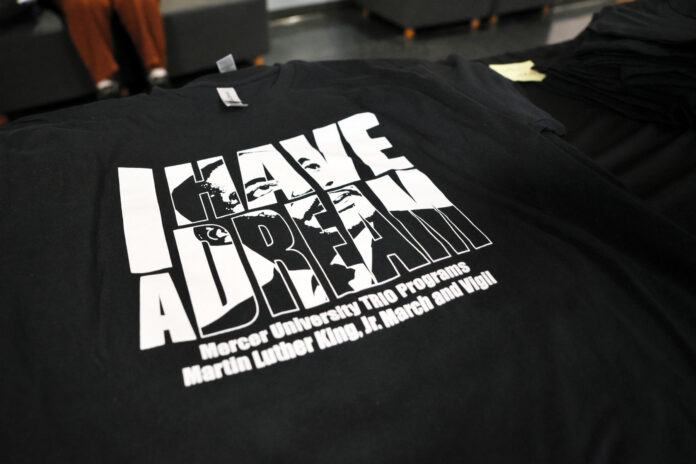
On April 12, 1963, Rev. Dr. Martin Luther King Jr. was arrested. King was confined to a cell in the Birmingham City Jail on charges that his joining of the marches to end segregation in the city were in violation of Alabama law, prohibiting mass public demonstrations.
The very next day, eight white clergymen wrote an open letter titled “A Call to Unity.” They condemned the marches, and they condemned King as an “outside agitator,” stating that his actions were “untimely and unwise.”
On April 16, 1963, King wrote in response what is arguably one of the most inspiring and eloquent pieces of prose in American history — “Letter from a Birmingham Jail.” In his handwritten letter, he declared that laws are human fabrications. Those laws that support God’s desire for human flourishing should be obeyed. Those that do not should be opposed.
To the charge of being an outsider, King offered his keenest insights: “Moreover, I am cognizant of the interrelatedness of all communities and states. I cannot sit idly by in Atlanta and not be concerned about what happens in Birmingham. Injustice anywhere is a threat to justice everywhere. We are caught in an inescapable network of mutuality, tied in a single garment of destiny. Whatever affects one directly affects all indirectly.”
King envisioned a humanity that was connected to each other in “an inescapable network of mutuality, tied in a single garment of destiny.” Whether in nations or neighborhoods, the life of each individual is bound inextricably to the lives and futures of all the others.
His reasoning is most easily imagined in the smallest unit of society, a family. If a parent loses a job, everyone in the family will be affected. Maybe the impact will be small and temporary, cutting back on a few luxuries like going out to eat or an expensive vacation. The impact may, however, be large and far-reaching, forcing the family to move into cheaper housing where the quality of the schools is lower and the threat of crime is higher or making it impossible for the children to attend college.
What is true for the smallest unit of society, can be extrapolated to the largest ones. Every community, every country is part of this “inescapable network of mutuality.” One needs only to look at the impact of the invasion of Ukraine to prove the point. This local war has caused global food shortages, embargos, inflation and a torrent of refugees, flooding, homeless and hungry, into surrounding nations that, in turn, face the extreme social and economic challenges of welcoming them.
There is no question that King was right. Each one of us lives inescapably in multiple and complex systems of interconnection. The question is not if but how should we live in this interwoven fabric, this interdependent network of mutuality?
First, we must care genuinely about our neighbors and their well-being. If our well-being is tied to theirs, even indirectly, it would be foolish for us not to care. If they suffer, then we will suffer. If they struggle, then we will struggle.
Even if we are not motivated to care out of the impulse of compassion, shouldn’t the urgency, at least, of our own self-interest push us to care about the hardships and diminishment of our neighbors? Let us open our eyes and hearts to our neighbors in caring.
Second, we must act with them to secure their well-being. Caring without acting is only a facade of concern. King acted. He went to Birmingham to stand side by side with those who were experiencing injustice.
What can we do? We can get to know the neighbors beside us, seeking to understand the challenges they face. King preached and wrote. We can use our voices to speak out and write, advocating for those whose voices are often muffled — the elderly widow, the homeless veteran, the abandoned teenager. King marched. We can volunteer and give in ways that make a difference for the young child who will go hungry all weekend, for the stranger who can’t find a job, for the planet whose future hangs in the balance. Let us open our hands to our neighbors in acts of service.
King left a remarkable legacy. May we be wise enough not only to celebrate it but also embody it as if our very lives depended on it. Maybe, they do.








